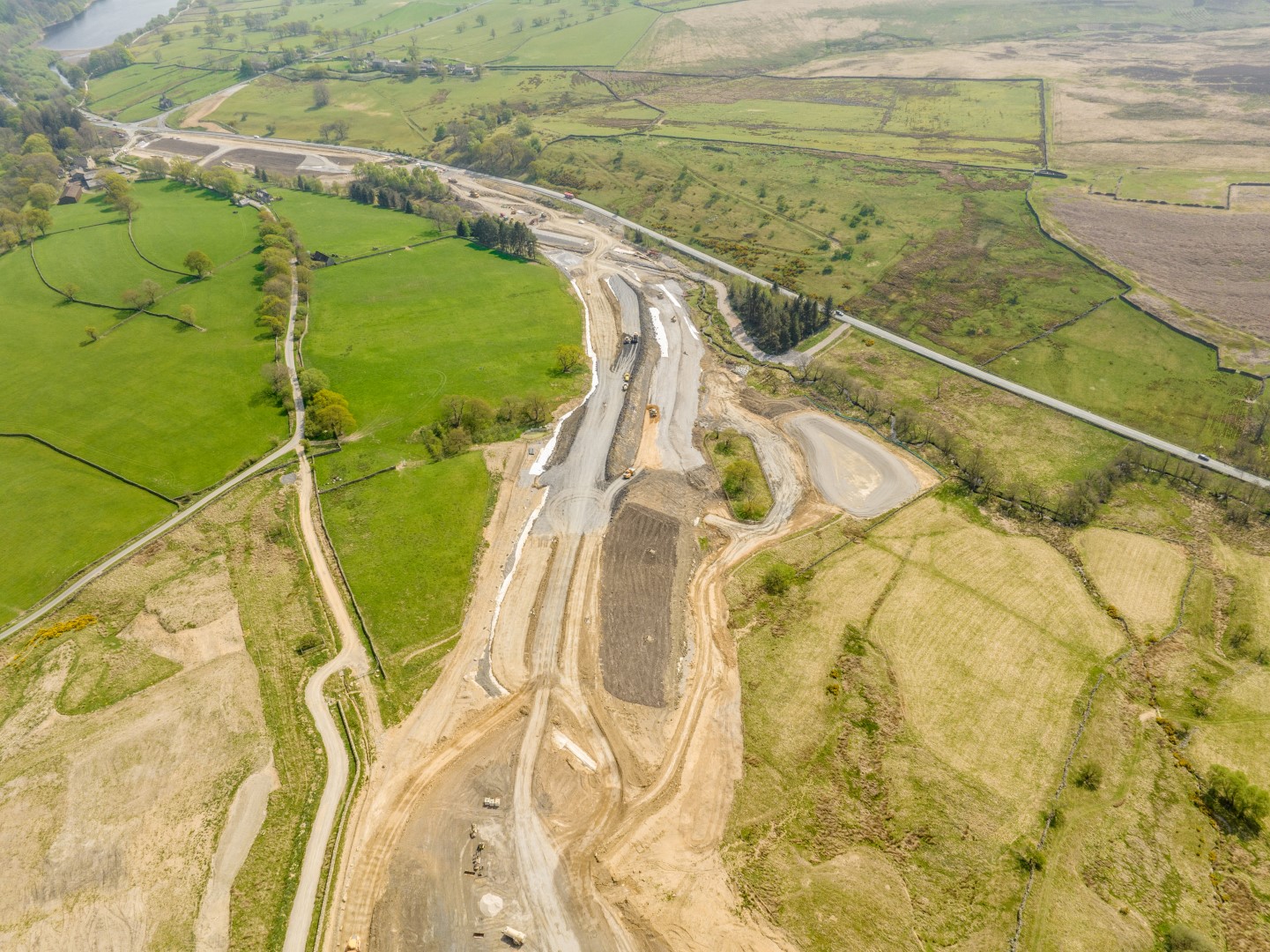
We are preparing to safeguard the future of the A59 with an extra £11.7 million of investment in its major Kex Gill realignment project.
Essential work is currently under way to bypass a section of the key east-west route near Blubberhouses, which has closed repeatedly over the years due to a series of landslips.
The most ambitious highways project ever undertaken by the council, work on the new four-kilometre road remains on track to open in spring 2026.
However, our executive is due to be told that extra investment is required to cover essential and unforeseen changes to the scheme.
Councillors will consider on Tuesday, 13 May, a request for an extra £11.7m to cover costs of design changes and additional work. An additional contingency budget is also being requested given there are likely to be further costs in the future.
If agreed, it means at this stage the budget for the project, excluding the contingency, would stand at £82.5m.
Executive member for highways and transportation, Cllr Keane Duncan, said: “Repeated closures of the A59 cause misery for our local communities, businesses and road users.
“There have been 15 since 2000 and they’ve cost us over £6m to repair so far.
“Without the new bypass, there is a significant risk of further costly and disruptive closures, that could ultimately threaten the road’s long-term future.
“That’s why we are keen to ensure work continues at pace and the new road can open to the public as quickly as possible.
“This will require extra investment to cover additional costs relating to factors that could not have been foreseen and that are outside of the council’s control.
“Despite these unfortunate extra costs, we are making excellent progress on site, and if this extra investment is agreed, the new road will be on track to open next spring.”
While the initial project cost included projections for risks of inflationary costs, the council’s contractor John Sisk & Son can seek additional payment for extra time and/or costs for dealing with unexpected changes, known as a ‘compensation event’.
These compensation events include the safe removal, transportation and disposal of a larger volume of material from the site than had been expected, totalling some 200,000 tonnes.
Other events include extra design and labour costs as a result of changing from a piling to earthworks solution, as well as costs incurred by the Department for Transport’s later than expected award of funding.
As well as the construction of the new carriageway, the project encompasses new bridleways and footpaths, four kilometres of natural stone walls, two balancing ponds, and an extensive environmental scheme to enrich local habitats in this national landscape, including planting 12,000 trees and installing several bird and barn owl boxes.
A total of 12 new culverts are also being installed to ensure water flows under the new road safely. These include mammal shelves and ledges to allow animals such as badgers, otters and other wildlife to pass through or nest.
To date, Sisk has worked with a vast number of local suppliers, contributing millions of pounds into the local economy, as well as employing local people and supporting young people with engineering apprenticeships.
Sisk has also carried out several schemes, including making and donating wooden toys to local schools, a litter pick at Fewston Reservoir and donating to local food banks.